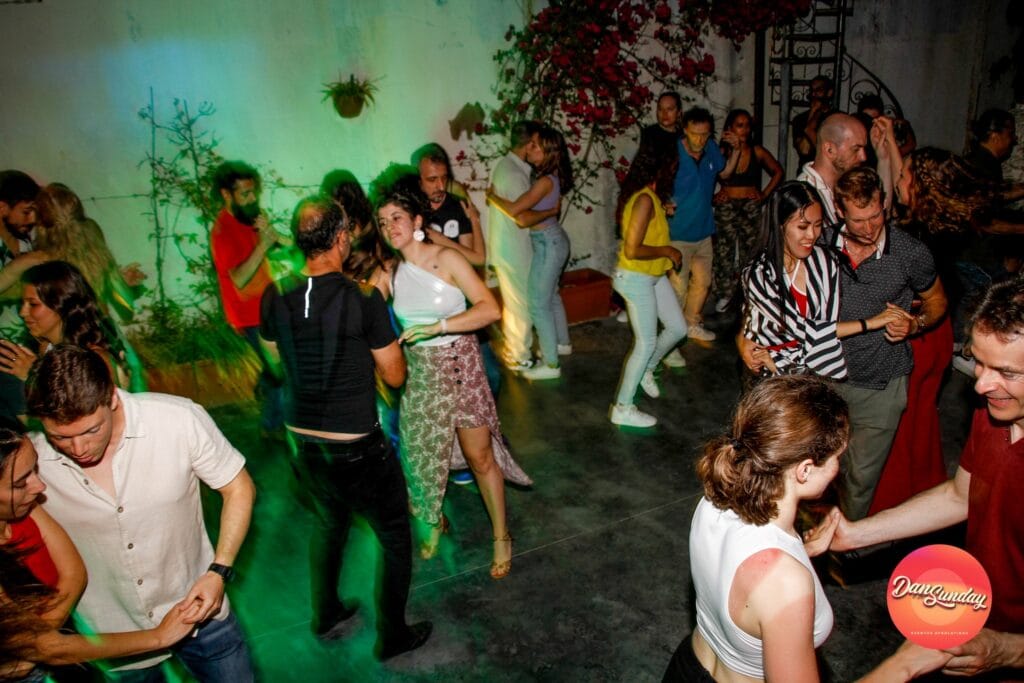After coming back from a three-week trip to Europe recently, I thought I developed severe jet lag.
My head was heavy for half of a day. I was falling sleep as early as 7:00 pm.
Classic jet lag symptoms that should disappear in a few days and perhaps a major sign of aging. Yikes — I thought to myself.
By the next day, my tiredness had not improved and I started to see signs of a new symptom — my throat had become scratchy. I had been suffering from GERD (Gastroesophageal reflux disease), also more common known as acid reflux, for years, after suffering from an excruciating, life-changing stomach inflammation. It must be because of that — after all, I did break my “no tomato and no coffee” rule while I was in Italy that I abide by normally to avoid producing too much acid. Italy is truly a magical place that can easily break the strictest dietary restrictions.
The next morning, I developed a fever. Uh oh, this is not good.
The next couple of days were a blur. I developed classic textbook symptoms of Omicron — fever, chills, body ache, extreme fatigue, loss of appetite, cough, congestion and night sweat. I think almost the entire “catalog” of symptoms got to me. Interestingly, not all symptoms happened at the same time. Some went away after a few days, and others persisted.
I think almost the entire “catalog” of symptoms got to me.
Stella Guan
I Tested Negative For A Total of 7 Times
My immediate reaction was to go get a Covid test. I initially tested with the widely-used home test kit that the U.S. government gave out for free.
Negative. Just one line came up when I was fully expecting two.
I wasn’t convinced. A quick Google search yielded a testing center only 10 minutes by foot away from my home. I could even get a PCR test for free with insurance coverage. It seems like a no brainer.
A few hours later, the rapid PCR test came back from the testing center. Negative, again.
I was perplexed, but not entirely lost.
Many friends have gotten Covid at this point and a few have told me that they tested negative a few times initially when symptoms began before testing positive when they tried again.
Many friends have gotten Covid and a few have told me that they tested negative a few times initially when symptoms began to appear before testing positive when they tried again.
Stella Guan
I decided to test again in a few days, but my next test happened a lot quicker than I thought it would.
My symptoms took a turn for the worse the next day. I had a lot of trouble with clearing the mucus and by the evening, I was still feverish and coughing up a very small amount of blood.
It triggered my internal alarm. This is really not good.
I immediately booked a telemedicine consultation through my insurance. The doctor listened to my symptoms and said that it would be wise to go to the emergency room just in case.
Unexpectedly, I Landed In The Emergency Room
It was just past midnight. Off I went to the nearest emergency room.
My mind has a way of scaring the crap out of myself — I realized I have been a lifelong hypochondriac. Taking after my mother, every time there is something suspicious happening in my body, I always found myself rushing to the hospital as soon as possible.
I still remember the time when I asked the doctor if my bruise was leukemia. It turned out I just bruise easily — thin veins or something serious hidden in plain sight — I don’t know. But I was relieved to find out it wasn’t the disease that nearly took my friend’s life.
Most of the time, it was nothing. But sometimes, I may have had my hereditary hypochondria to thank for. When I was fourteen, I contracted acute pneumonia after getting soaked in torrential downpour while biking to school and not changing immediately after. The chilled-to-the-bone “humid cold” in the subtropical rainforest-like climate where I grew up was not apparently friendly to a young person’s lung.
Had my mother not taken it seriously immediately, I could have missed the best time to get treated. It could have been a lot worse.
Getting sidetracked here — after what seemed to be eternal wait in the emergency room, I was finally seen by a doctor as well as had my nose poked at again by a nurse.
The result? Negative, yet again.
The doctor said: “There are so many viruses going on these days. You may just have one of the other ones. But yeah, you don’t have Covid.”
“What about me coughing up blood?” I asked.
“Well, it could just be that you were doing too much forceful coughing. It’s not uncommon if it’s just a little bit of blood,” said the doctor.
After four hours of waiting at the emergency room, I was sent home and told to just rest.
In a country where I have to pay out of pocket for commercial private insurance at a premium price tag of hundreds of dollars a month while emergency room visits are still at $350-$400 copay per visit, I surely was thrilled to find out I don’t have Covid and perhaps not lung cancer, either.
In a country where I have to pay out of pocket for commercial private insurance at a premium price tag of hundreds of dollars a month while emergency room visits are still at $350-$400 copay per visit, I surely was thrilled to find out I don’t have Covid and perhaps not lung cancer, either.
Stella Guan
“Long Covid” Kicked In
After about 10 days, my primary symptoms finally seem to have disappeared — almost.
I still remember one of my friends testing negative for a whole week before she finally tested positive at the beginning of the week after.
The reason that I was still entertaining this thought was the fact that I know how little we know about this disease still and the fact that my symptoms have been so classic.
I tried to do a home test right before my symptoms were about to take a turn for the better. Of course, I tested negative again.
In between, I also paid several visits to the nearest urgent care center when I felt heavy in my chest and asked them to test me again. Without fail, I was negative.
In the meantime, as I was glad to have turned a corner, I discovered that I may have developed long Covid. I started to experience nausea and diarrhea for no apparent reason. My cough also didn’t completely cleared up like it had been the case with the flu, bronchitis or pneumonia, which I have all had.
From time to time, I would experience fatigue and fall asleep in the middle of the day. Sometimes in late afternoons, my body temperature would feel higher than normal and I was able to confirm that it was indeed borderline feverish with my infrared thermometer.
I temporarily lost my sense of taste for a day or two.
It was truly the most bizarre virus. I could almost feel that it was still sticking to my body and randomly attacking a different part of it every day.
It was truly the most bizarre virus. I could almost feel that it was still sticking to my body and randomly attacking a different part of it every day.
Stella Guan
Does this qualify as long Covid? I don’t know, but I surely hope it won’t last for months and months.
My Last Resort — An Antibody Test to “Confirm” Covid
Several weeks have past since my primary symptoms (almost) went away.
I decided to do an antibody blood test, as a last resort to see if I could have had Covid. My gut told me I did, but I had no proof, which was driving me crazy.
I am well aware that antibody tests don’t tell us much currently. They can’t prove that we have protection and if we did, how much protection. We still don’t know how long “immunity” will last. It may also reflect vaccine-induced immunity.
Given my last vaccine shot was well over 1.5 years ago, it most likely couldn’t really be vaccine-induced immunity as it usually wanes after weeks and months.
I experienced an adverse reaction after my second Pfizer shot, which resembled blood clot symptoms and was briefly hospitalized. A third or further shot was simply not a wise idea.
When my antibody results came back, I was both shocked and not surprised.
When my antibody results came back, I was both shocked and not surprised.
Stella Guan
My antibody level showed up extremely high. From a scale of 0 to 5, with below 1 being considered negative, as noted by Quest Diagnostics on their reports, my level was at 4.33 — almost the top.
Ah-hah! I knew it!
It sounds like such a bizarre thing to say, but I was relieved to find out this result not because I think I have protection now. I probably still don’t given the fast-evolving new variants. I still plan to take necessary precautions. I was simply relieved to have at least an explanation to the ordeal I experienced in the past month.
How did I get infected? On the plane back from Europe, sitting next to a man who was coughing the whole time while not wearing a mask.
How did I get infected? On the plane back from Europe, sitting next to a man who was coughing the whole time while not wearing a mask.
Stella Guan
I wanted to add a head smack emoji right here, but I think whatever can be expressed by emoji can also be expressed by words.
Can I say I had Covid 100% with the “extremely positive” antibody test? Perhaps not, but I think it’s as close as it gets for now.
What The Heck Happened and What Does It Mean?
When I was sick, I stumbled upon an article describing a family that experienced almost the same thing as me — never testing positive but probably had it.
That’s a big speculation of course, which is why I wore a mask every time I went outside of my room as I share my home with someone else.
It was good to know that there are others, albeit a very small minority, who experienced similar bizarre infections like I did.
It was good to know that there are others, albeit a very small minority, who experienced similar bizarre infections like I did.
Stella Guan
Is this what really happened? Maybe time would tell as hopefully, we find out more about this terrible disease and getting closer to being able to manage it.
The main key takeaway from my experience is — just because you tested negative repeatedly still doesn’t mean you don’t have it. If you have symptoms, do others around you a huge favor — unlike the man next to me on the plane — isolate yourself from them.
The main key takeaway from my experience is — just because you tested negative repeatedly still doesn’t mean you don’t have it.
Stella Guan
As for me, I am happy to report that no one else in my household became infected by me, which is very likely the result of my taking precautious to protect them.




